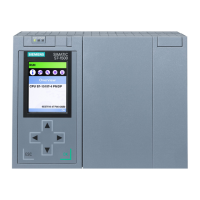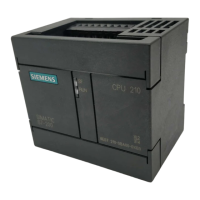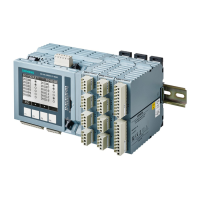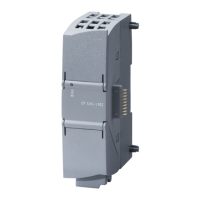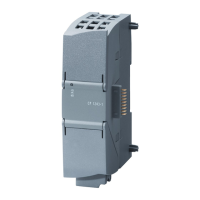I/O configuration variants
4.5 Using single-channel switched I/O
CPU 410-5H Process Automation/CPU 410 SMART
62 System Manual, 10/2013, A5E32631667-AA
You can determine the first two values from the bus parameters of your DP master system in
STEP 7. You can obtain the last value from the manuals of the relevant DP slave interface
module
(distributed I/O device ET 200M
or
DP/PA bus link
).
-safe modules, always set a monitoring time for each fail-safe module that is
longer than the changeover time of the
active channel in the fault-tolerant system. If you
ignore this rule, you risk passivation of the fail
-safe modules during the changeover of the
Note
Note that the CPU can only detect a signal change if the signal duration is greater t
han the
specified changeover time.
When there is a changeover of the entire DP master system, the changeover time of the
slowest DP component applies to all DP components. A DP/PA link or Y link usually
determines the changeover time and the associated min
imum signal duration. We therefore
recommend that you connect DP/PA and Y links to a separate DP master system.
Changeover of the active channel during link-up and updating
During link-up and updating with master/standby changeover (see Chapter Link-up
sequence (Page 261)), a changeover between the active and passive channels occurs for all
stations of the switched I/O. At the same time OB 72 is called.
Bumpless changeover of the active channel
To prevent the I/O failing temporarily or outputting substitute values during the changeover
between the active and passive channel, the DP or PNIO stations of the switched I/O put
their outputs on hold until the changeover is completed and the new active channel has
taken over.
To ensure that total failure of a DP or PNIO station is also detected during the changeover,
the changeover is monitored by the various DP/PN IO stations and by the DP master
system.
System configuration and project engineering
You should allocate switched I/O with different changeover times to separate chains. This,
for example, simplifies the calculation of monitoring times.
Time monitoring (Page 110)
